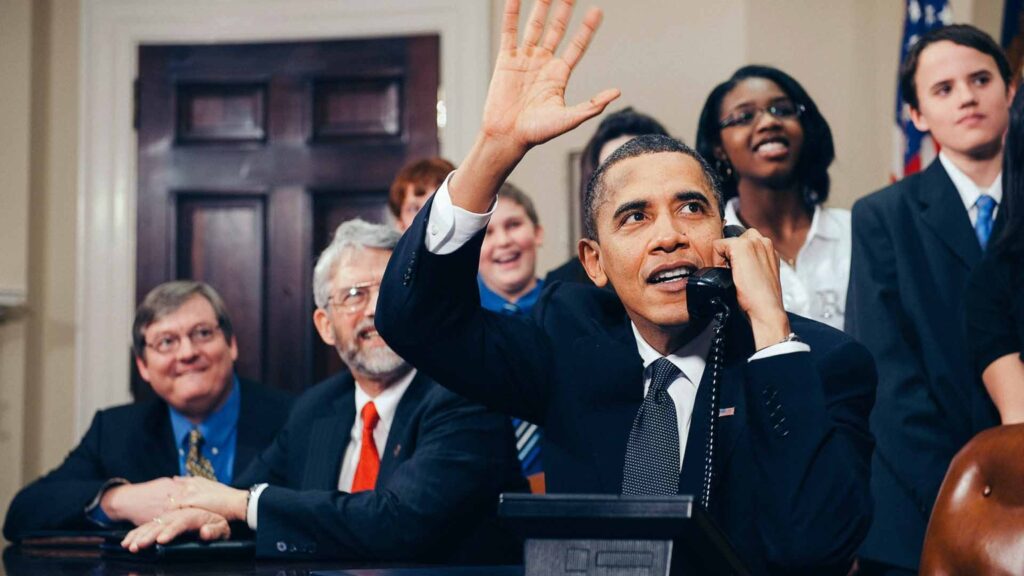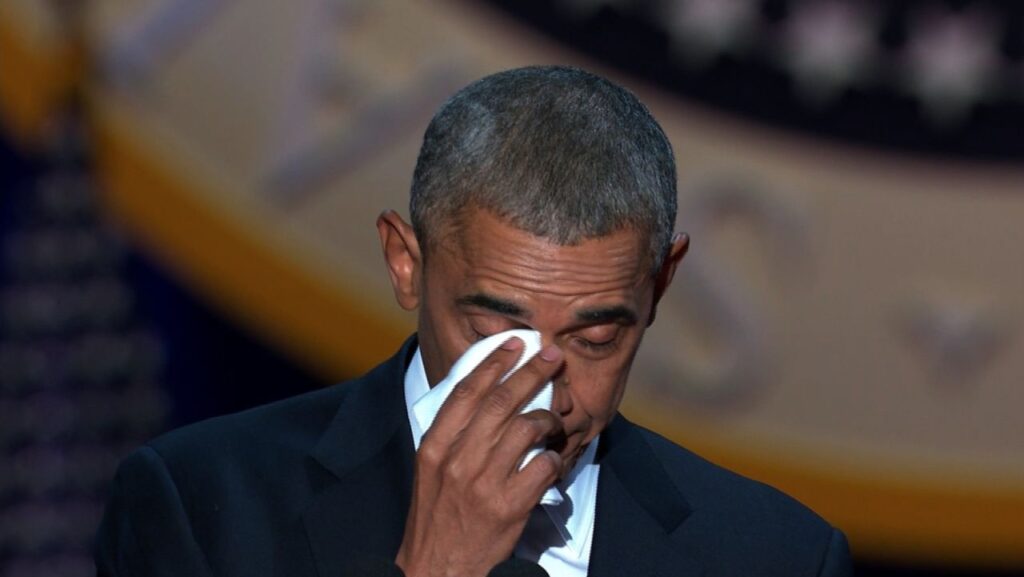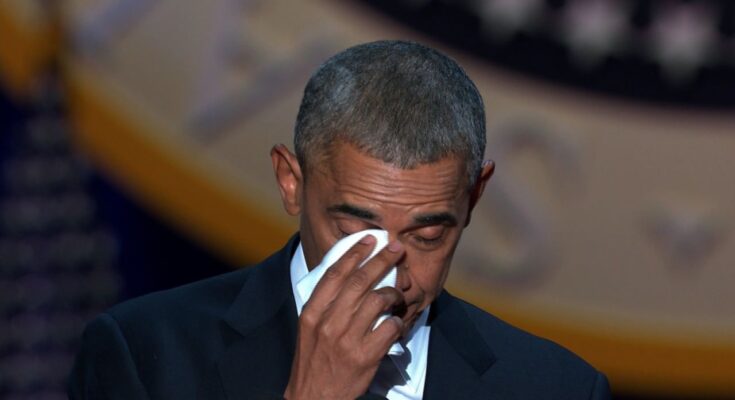
Throughout history, leaders have been expected to project strength, resilience, and unwavering determination. However, some of the most profound and unforgettable moments in leadership arise when those in power allow themselves to be vulnerable. One such moment occurred when former President Barack Obama shed a tear during an address—an emotional response that resonated deeply with millions around the world. This instance was not merely a fleeting display of emotion; it was a testament to the weight of leadership, the gravity of responsibility, and the humanity that underpins true leadership.

Obama’s emotional moment came in January 2016 during a speech on gun control, a deeply polarizing issue in American politics. As he spoke about the devastating impact of gun violence, particularly on children, he wiped away tears, visibly moved by the countless lives lost to senseless shootings. This display of raw emotion was not a sign of weakness, as some critics suggested, but rather a powerful demonstration of empathy. His tears were a reflection of the profound burden of leadership—the pain of witnessing tragedy, the frustration of political gridlock, and the deep-seated hope for a better future.
Leadership, at its core, is not just about policies and decision-making. It is also about connection, compassion, and the ability to inspire change. Obama’s moment of vulnerability reminded people that leaders are not merely political figures operating in a vacuum; they are human beings who care deeply about the issues they champion. His tearful reflection resonated with countless individuals who have suffered loss due to gun violence, validating their grief and reinforcing the urgency of addressing the problem.

Beyond this specific instance, Obama’s leadership style often embodied a balance of intellect and emotion. Whether delivering speeches on race, healthcare, or national tragedies, he frequently invoked themes of unity, resilience, and shared humanity. His ability to connect with people on an emotional level was one of his defining traits, setting him apart as a leader who could not only inspire but also empathize.

In the broader context of leadership, Obama’s emotional moment serves as a reminder that authenticity and vulnerability can be powerful tools. While some leaders may choose to mask their emotions in an attempt to appear unshakable, moments of genuine emotion can strengthen public trust and deepen connections with citizens. When a leader shows they care, people are more likely to believe in their vision and rally behind their cause.
Obama’s tearful reflection on leadership and humanity was more than just a moment—it was a statement. It underscored the importance of empathy in governance, the emotional toll of leading a nation, and the role of human connection in shaping history. As future leaders emerge, this moment will stand as an example of how courage is not only found in unwavering resolve but also in the willingness to feel, to care, and to lead with heart.



